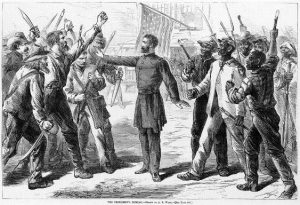[Author’s note: This series of excerpts from the Regina Shober Gray diary began here.]

Another feature of the Gray diary from this point is the comparative failure of Dr. Gray’s brother, William Gray (1810–1892), who had hitherto been a mainstay of the family, his wealth and generosity easing things for Dr. and Mrs. Gray and their children.
Boston, Tuesday, 13 June 1876: Wrote yesterday to decline Sallie Gray’s[2] very kind invitation for Doctor and myself to make them a visit [in Brookline], beginning next Thursday. At first, Dr G. was much pleased at the idea and felt sure he should like to go. I knew his courage would fail ere the time came – but I encouraged him all I could; …yesterday he decided it was quite impossible for him to leave home. Continue reading ‘Three sorrowful households’





